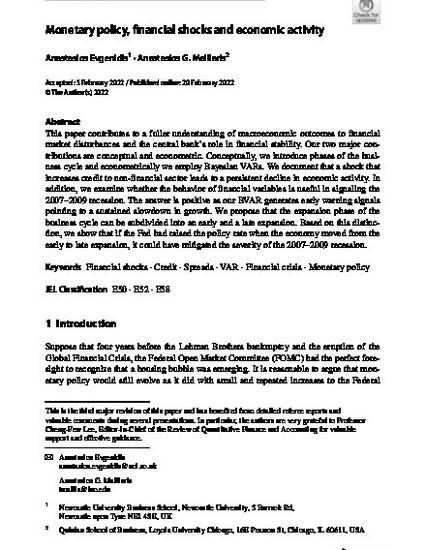
This paper contributes to a fuller understanding of macroeconomic outcomes to financial market disturbances and the central bank’s role in financial stability. Our two major contributions are conceptual and econometric. Conceptually, we introduce phases of the business cycle and econometrically we employ Bayesian VARs. We document that a shock that increases credit to non-financial sector leads to a persistent decline in economic activity. In addition, we examine whether the behavior of financial variables is useful in signaling the 2007–2009 recession. The answer is positive as our BVAR generates early warning signals pointing to a sustained slowdown in growth. We propose that the expansion phase of the business cycle can be subdivided into an early and a late expansion. Based on this distinction, we show that if the Fed had raised the policy rate when the economy moved from the early to late expansion, it could have mitigated the severity of the 2007–2009 recession.
© Springer, 2022
Available at: http://works.bepress.com/atassos-malliaris/63/

Author Posting © Springer, 2022. This is posted here by permission of Elsevier for personal use, not for redistribution. It was published in Review Of Quantitative Finance and Accounting, Volume 59, Feb 2022. https://10.1007/s11156-022-01045-z